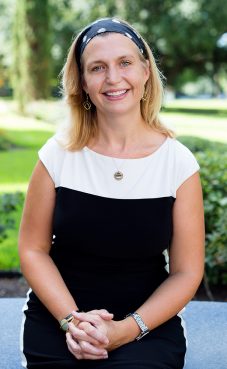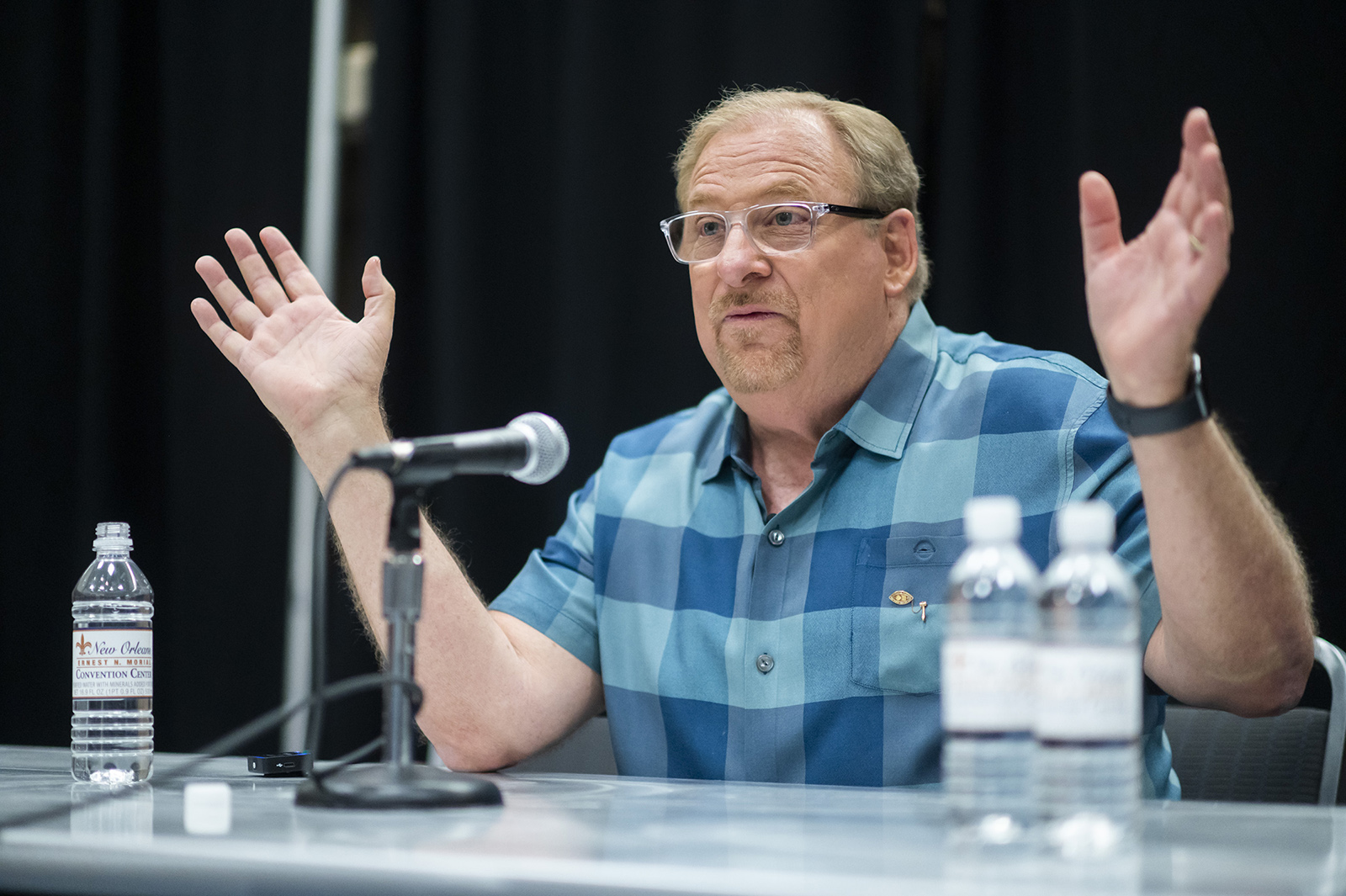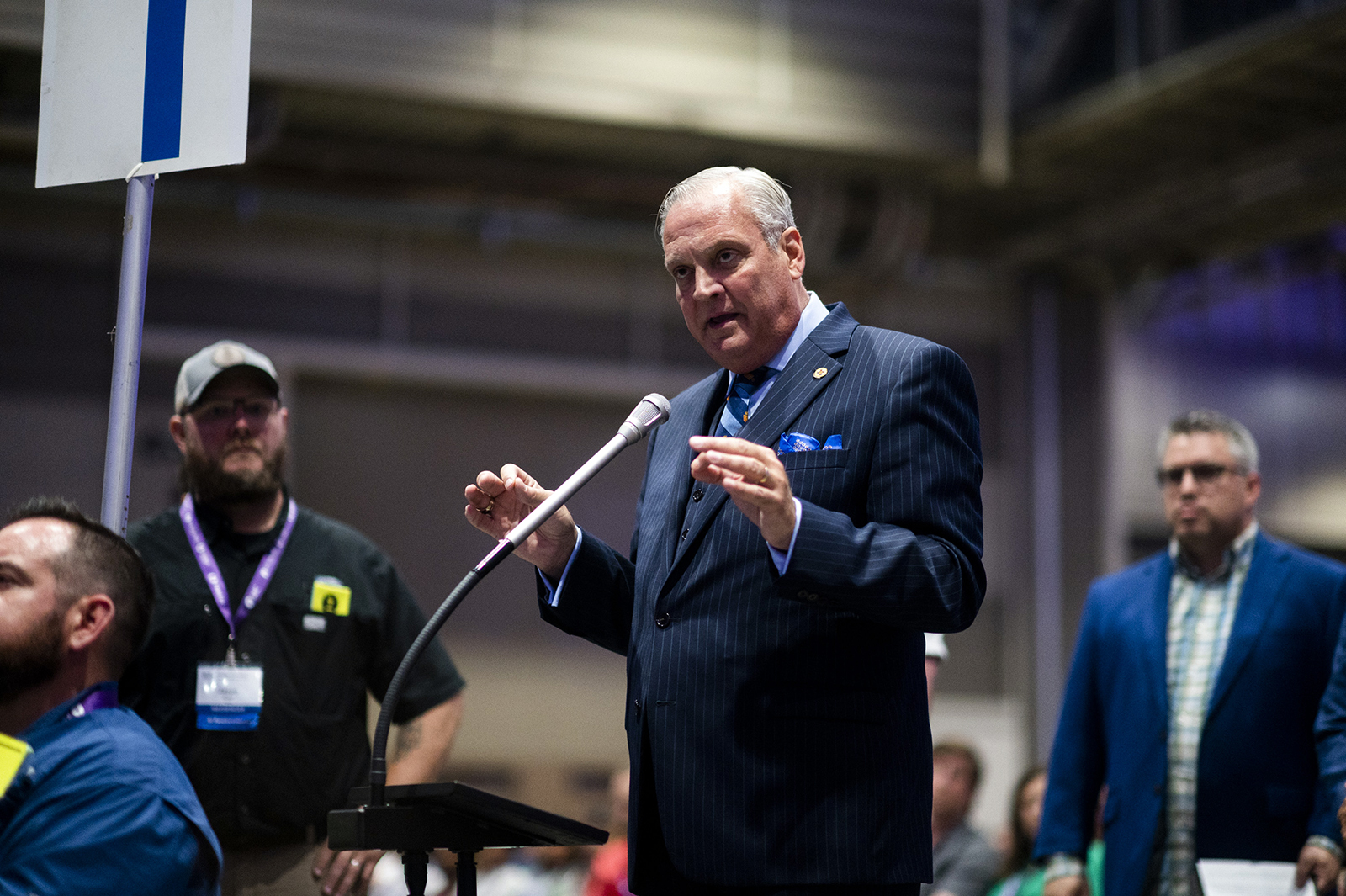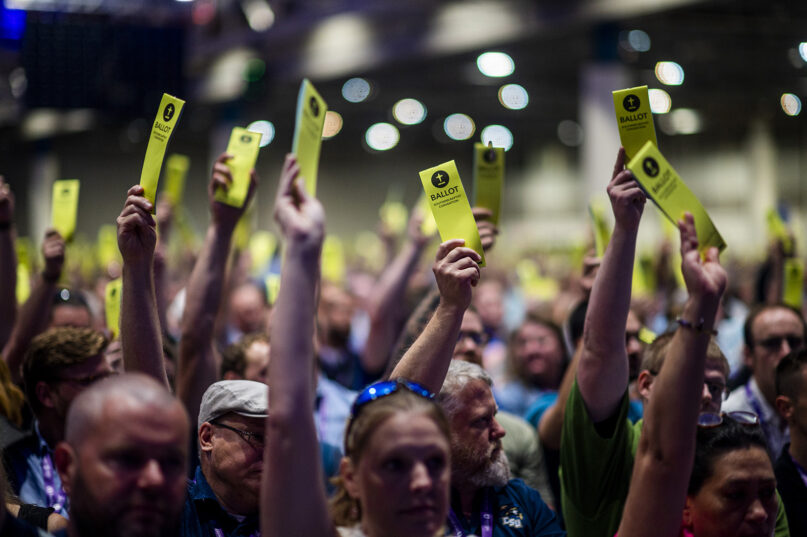(The Beaty Beat) — Not long ago, I noted that if you want to know where evangelical Christianity is going, you need to understand the Southern Baptist Convention. With its recent reckoning over sexual abuse, treatment of women and dalliances with “alt-right white supremacy,” the largest Protestant denomination’s annual meetings crystallize broader struggles over the future of evangelicalism.
I followed this month’s meeting as Saddleback founding pastor Rick Warren pleaded with his former cohort to not break fellowship with his Southern California megachurch, despite its decision to ordain three women in 2021. The 2000 Baptist Faith and Message (the SBC statement of faith) states that “the office of pastor is limited to men.” But in 2022, SBC leaders debated whether “pastor” means any pastoral role, including something like children’s pastor, or only the pastor preaching from a pulpit or stage.
Beth Allison Barr has some thoughts about all this. Barr is the James Vardaman Professor of History at Baylor University, the author of “The Making of Biblical Womanhood: How the Subjugation of Women Became Gospel Truth” and a lifelong Baptist insider and pastor’s wife. (For full disclosure: Barr is an author with Brazos Press, where I serve as editorial director.)
I spoke with Barr recently about last week’s vote, the SBC commitment to “soul competency” and why she thinks the denomination has essentially changed.
For people like me outside the SBC, it’s hard to grasp what exactly the annual meetings are and why they matter. So, what are they? Who attends? Who are “messengers”?

Beth Allison Barr. Courtesy photo by Katelyn Casper
For someone who grew up in the Southern Baptist world, I didn’t realize that people didn’t do this all the time. The SBC was founded in 1845, from the split between the northern Baptists and the southern Baptists. At the time these annual meetings within the broader Baptist world were common … and they’ve been getting bigger. This year they had 12,000 messengers. It’s becoming increasingly difficult to choose venues that will support the number of messengers that are coming.
The rules that they made very early on with the founding, they have a constitution in 1845, and the constitution outlined who gets to go to these meetings. Every Southern Baptist church, everyone who’s in “friendly cooperation” — the phrase we know a lot about now — gets to send messengers. And the amount of messengers a church can send depends on not just how big they are but how much money they give. So churches can send at least two messengers, men or women. We start seeing women in the 19th century being able to be sent by churches as messengers.
I tried to get a feel for how many women were there this year. I would say maybe 25% of messengers were women.
Reporters describing the SBC often describe it as “the largest Protestant denomination in North America.” And then I hear from SBC insiders, “We’re not a denomination!” You’ve used the language of churches being in “friendly cooperation.” So is the SBC a denomination?
If you go to the SBC website and look up “How do I get to be ordained?,” first of all, it uses the word “person” for being ordained, it doesn’t specify “male” or “female,” and I wonder if that’s going to change.
The second thing it says is that because the SBC is not a church, it does not ordain. Local churches ordain. I just came from Canada, talking at the Evangelical Free Church of Canada. They are a denomination, their convention is a denomination, so if you want to be credentialed and licensed and ordained as an EFC minister, you have to submit to go through a committee of the EFC that credentials ministers.
The SBC doesn’t do that. The SBC does have a credentialing committee, but they don’t say who can be ordained and who can’t be. Local churches put forward people that they feel are called, and they ordain them themselves.
The constitution set off in 1845 what it means to be in friendly cooperation. That has been slowly added to over time. We just saw the most recent amendment in 2023, that to be in friendly cooperation, you have to be a church that has only male pastors.
Warren said, “I am asking you to act like a Southern Baptist, who have historically agreed to disagree on dozens of doctrines, in order to act on a common mission,” arguing that women’s ordination is not an issue that needs to prompt disfellowship. But 88% of messengers voted in favor of disfellowshipping. So what does this vote mean, given the SBC’s nonhierarchical fellowship approach?

Rick Warren speaks with media at the Southern Baptist Convention annual meeting at the Ernest N. Morial Convention Center in New Orleans, June 14, 2023. RNS photo by Emily Kask
I think it’s a fundamental change in the Baptist identity of the SBC. This is something that folk have been arguing about since the beginning of the Conservative Resurgence in 1979, where pastors had been saying, “If we go this route, we will be denying these Baptist tenets of local autonomy of churches as well as soul competency.” Which are two basic tenets of Baptist churches, what they agreed upon: We’re going to function as a community of churches that agree in cooperation, we agree about believer’s baptism, we agree about the significance of the Bible, we agree about soul competency, and we agree about the local autonomy of the churches.
And what is soul competency?
It’s essentially local autonomy of churches for local autonomy of individuals. The only people we answer to is God, God calls us, and our salvation comes only through our relationship with God, we make that choice, and we also follow God’s call on our lives wherever it will be. Individuals have that freedom to discern the calling on their lives. And local churches have the freedom to discern the calling on their church, including pastors. And the SBC doesn’t have any authority over the autonomy of a soul or of a church.
So we might think soul competency would allow freedom for churches to ordain women according to what they believe God is calling them to do without recourse from the larger fellowship.
That’s exactly right. All the language up through 2000 agreed on this. Even the folk pushing for the changes in the Baptist Faith and Message. Al Mohler, who was so visible in the 2023 convention, said, “Yes, we believe the Baptist Faith and Message that women should joyfully submit to their husbands and that the role of pastor is qualified for men.”
But at the same time, he said, “Churches don’t have to agree with this. We’re Baptist. We’re not going to force any local church to adhere to this.”

R. Albert Mohler, president of Southern Baptist Theological Seminary, speaks at the Southern Baptist Convention annual meeting at the Ernest N. Morial Convention Center in New Orleans, June 13, 2023. RNS photo by Emily Kask
Adrian Rogers said something very similar. Rogers was the first conservative president of the resurgence. He was voted in at the 1979 Houston SBC convention, and his election is considered the mark of the beginning of the conservative resurgence. And he also emphasized local autonomy of churches.
This language has started to disappear. Where they say, “Yes but if you’re going to be in friendly cooperation with us, you do actually have to agree on these things. If you want to pray with us, you have to agree with us.” I would say it’s a fundamental change.
I just assumed that one of the primary theological foundations of the SBC was male headship in the church and home. But it sounds like it hasn’t always been that way.
It’s always been embedded in Southern Baptist DNA, because Southern Baptist [identity] was born in 19th-century Victorian morality as well as in racism. So this idea of a hierarchy that’s ordained by God is part of its history. But at the same time, the Southern Baptist world, like other Baptists, has empowered individuals regardless of sex.
So we can even think about things like the Women’s Missionary Union, which became very strong around the same time as women’s suffrage. They built one of the most significant dormitories on Baylor’s campus by their own fundraising during the Great Depression.
The WMU has been disempowered over time by the SBC. They’re not officially a part of the SBC; they’ve always been considered an auxiliary branch, which didn’t matter early on in the 20th century, when they were really important and brought along as equal partners, but as women have been being pushed out of this leadership role, the WMU emphasis at the convention has given rise to the pastors’ wives luncheon.
So tell us about the pastor’s wife model.
We see this very clearly with Paige and Dorothy Patterson, and this emphasis that God’s calling on women’s lives is not to be individual ministers but to be supporters of male ministers, and women’s calling shifts from being called by God to go serve by themselves or with somebody else but they get that individual calling, to a calling that they get through their marriage to their husband.
So this is a shift from what I call an independent women’s leadership role to a dependent women’s leadership role.
What does all this mean for the broader evangelical movement?
The SBC’s hardening stance on women has mirrored a hardening stance in wider evangelicalism. I think what the SBC has just done will give confidence to the broader evangelical world, that not only do we say it’s not biblical for women to serve in these roles, but that it’s OK for our churches to take these really hard-line stances. Some have expressed fears that some denominations that have already accepted women in ministry roles might actually go back and revisit that question. That fear is a real fear given the power the SBC has in the evangelical world.
(Katelyn Beaty is the author of “Celebrities for Jesus: How Personas, Platforms, and Profits Are Hurting the Church” and a co-host of the RNS podcast “Saved by the City.” This commentary is adapted from her Substack column “The Beaty Beat,” where you can find the full interview. The views expressed herein do not necessarily reflect those of Religion News Service.)





